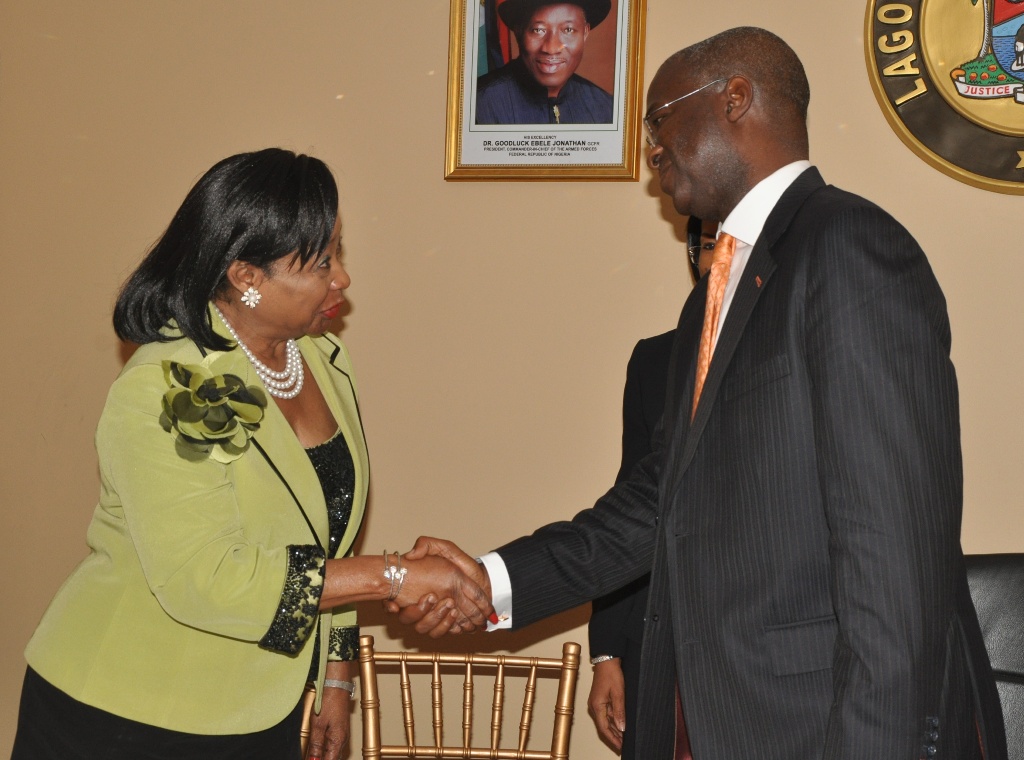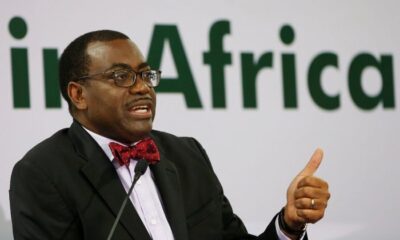Economy
Power Sector Reforms Must be Completed
Published
9 years agoon

The President, Lagos Chamber of Commerce and Industry, Dr. Nike Akande, discusses how to move the nation’s economy forward in this interview with Anna Okon
What is the nation’s economic outlook for 2016?
With the cabinet in place, ongoing budget processes, drive for economic diversification, concerted efforts against corruption and the various reforms in the critical sectors, we expect to see positive developments in the economy.
This year (2016), Gross Domestic Product growth is expected to rebound, though slowly, if the right mix of fiscal and monetary policies is put in place to stimulate the economy and attract domestic and foreign investments.
While the recovery is expected to be driven by increase in government expenditure, the growth in oil sector may be constrained still by low price and dragging investment drive.
The Treasury Single Account is also expected to plug leakages, curb corrupt tendencies, increase revenue to government and thereby improve funding for government projects.
The Managing Director, International Monetary Fund, Christine Lagarde, recently paid a visit to Nigeria. The core of her visit were issues bordering on drastic fall in government revenue occasioned by the plunge in global oil prices, budget deficit financing, economic diversification and lots more. What is your take on these issues?
We must recall that the new political administration led by His Excellency, President Muhammadu Buhari came into power on May 29,, 2015 at the time the country was facing serious economic challenges as you earlier highlighted.
The challenge faced by the economy, as a result of the decrease in oil revenue, which prompted fiscal imbalances, is a global phenomenon especially among the oil-exporting countries. We need international cooperation and partnership as there is, obviously, no easy way out of the crisis. Therefore, the visit of the IMF boss is, indeed, timely as it offers us the opportunity to deliberate on these issues towards fostering the international partnership and cooperation, especially with the Fund.
Above all, the government needs to develop other sectors of the economy like manufacturing, agriculture and solid minerals and service sectors to strengthen the current economic cord.
The way to do this is to create an enabling environment in terms of the right infrastructure, affordable long-term financing and the right policies.
Nigerians are very enterprising. Once the environment is right, Nigerians will make things happen. We also need to patronise made-in-Nigeria products to encourage our local manufacturers.
There had been persisting scarcity of petroleum products leading to long queues at filling stations, traffic congestion on the roads and loss of man hours. What is LCCI’s position on the downstream petroleum sector?
The persistent fuel crisis in Nigeria again underscores the need to urgently review the current policy framework of the oil and gas industry, especially with regard to the petroleum downstream sector. We commend the efforts of the government in revamping the refineries with a view to reducing our fuel importation in the coming years. We hope to see a situation where eventually all our refineries are operating optimally and the private sector should be encouraged to participate more in the sector thereby creating jobs for Nigerians.
The private sector is ready to partner the government to make these efforts work as government must not be left alone in these endeavours.
How have your members been coping with the challenges of electricity supply and consumption in Nigeria? And what is the way out?
The power situation has been a challenge from time past and fixing it will require consistent investments in that sector. The present administration has shown that power supply is one of its top priorities.
The Honourable Minister of Power, Works and Housing, Mr. Babatunde Fashola, who was the governor of Lagos State, is known to be a go-getter.
I believe private sector businesses are ready to pay for electricity once it is available. I urge the government to continue with the pace of reforms in the sector to ensure that more electricity consumers have meters.
You are the second female president of the LCCI in its 127-year history. How would you assess the leadership opportunities for women in the corporate world in Nigeria? And what is the Chamber doing to encourage women entrepreneurs?
Women are doing well in many spheres of the corporate world. For instance, the Chairmen of First Bank, Access Bank and Guaranty Trust Bank are all women. We also have many women as Chief Executive Officers of big organisations across all sectors. We are doing well. But we can do better.
The ratio, to a large extent, is still skewed towards men. The LCCI has a vibrant women group which focuses on the advancement of the interest of women. They seek opportunities for women in all areas of enterprise and finance. They also collaborate with embassies and international organisations that have programmes for women.
In addition, the Chamber has a robust mentoring programme for young people to make them entrepreneurs. We attach these young people to our members for a period of time to teach them and share experience with them on managing businesses. The third batch of about 35 mentees graduated only a few weeks ago. We also train young entrepreneurs to build their capacities in different areas of business.
You are a two-time Minister of Industry. What was the experience like? And how would you assess the present administration from a private sector point of view?
First of all, my experience as a two-time Minister of Industry was very exciting and yet challenging. But I thank God for the opportunity to serve my country at such a high level.
During my tenure, we set up industrial development centres all over the country to support industrialisation, especially small scale industries. I also supervised many parastatals that interfaced with investors. One of them was the Nigerian Industrial Development Bank, which is now the Bank of Industry.
I have also supervised the Benue Cement Company, the Machine Tools, Oshogbo and many more.
Frankly speaking, the government has been doing a great job fighting terrorism. You know you cannot do business when security is not guaranteed.
Also, the government has also been doing a lot in fighting corruption which is also one of the biggest problems we have in the country.
With the new budget and some new policies, I am sure we will have more programmes and activities this year. We will continue to give government the necessary support to make the country better.
As the new President of the Lagos Chamber of Commerce and Industry, what is your vision for the chamber and how do you plan to achieve it?
First of all, I give glory to the Almighty God for the opportunity to serve my country on this platform and in this capacity. I am also grateful to members of the LCCI for electing me. Being the President of the Chamber is, indeed, a great task. I will, therefore, be resolute in contributing my quota to the advancement of the cause of the Nigerian private sector and the progress of our economy as a whole.
Furthermore, while a lot has been done by all my predecessors towards achieving the core objectives of the Chamber, I am prepared to build on their worthy legacies by pushing the frontiers as regards strengthening the effectiveness of the LCCI advocacy and research activities to create a more conducive environment for investors.
We will also work towards putting in place strategic innovative programmes to attract and retain more members across sectors. In fact, since my assumption of office, quite a number of people have shown interest in joining the Chamber.
Also, we will diversify our trade fairs and exhibitions to cover more sectors and specialised exhibitions thus making it the best in Africa.
We aim to consolidate on the landmark achievements of our training arm through which we embark on capacity building for Small and Medium Enterprises.
We are looking at improved close collaboration and partnership with federal and state governments as well as the private sector to improve the business environment.
Is the CEO and Founder of Investors King Limited. He is a seasoned foreign exchange research analyst and a published author on Yahoo Finance, Business Insider, Nasdaq, Entrepreneur.com, Investorplace, and other prominent platforms. With over two decades of experience in global financial markets, Olukoya is well-recognized in the industry.

You may like
-
Nigeria Joins BRICS as Partner Country, Strengthening Global South Cooperation
-
70 Million Poorest of The Poor Nigerians To Get N75,000 From FG
-
Nigeria Surpasses OPEC Quota with 1.51 Million bpd, Targets 2.06 Million in 2025
-
Global Investors Commit $7.6 Billion to Nigeria’s Development at AIF 2024
-
Nigeria-China Trade Strengthened as Grimaldi Introduces Direct Shipping Line
-
Nigeria’s GDP Records 3.46% Growth in Q3 Spurred by Non-Oil Sector













